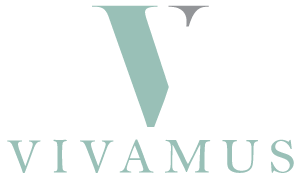Although psychological therapies were originally developed with adults in mind, the field has expanded greatly, and we are fortunate enough to have a host of evidence-based therapies and approaches for working with people throughout the lifespan starting with very young children and toddlers. Dr Dina Bedair, Child and Adolescent Psychologist answers some common questions about child therapy in Dubai.
What ages do you see?
Any age! Although the younger the child the more likely that the therapy will involve parents and perhaps the rest of the family.
What types of therapies do you offer?
For some younger children we can offer play-based therapy which tends to be a longer form of therapy that is conducted directly with your child. Play is used as the “language” of therapy and this form of therapy relies on developing a relationship between the child and the therapist. The child is invited to play in a non-directive manner while the therapist supports this and opens up new ideas and possibilities for the child through play.
For other families we may suggest a behavioural approach whereby parents attend most of the sessions. In this approach your psychologist will help you to understand your child’s behaviour and work to find alternative ways of responding in order to shape your child’s behaviour.
A family therapy-based approach is another option when working with children of all ages. In this form of therapy, the whole family is invited to attend therapy sessions. After all, your child spends most of their time with their family and it is likely that family members know your child the best. Often when working with children and young people we find that they really value having input from the rest of the family. It is also less stigmatising for the young person if they witness others in the family engaging in therapy alongside them.
Once you have an initial session, your psychologist will be happy to discuss all of the available options to you and in some cases a mixture of approaches may be appropriate. Your psychologist will adapt forms of therapy to suit your child’s language level, abilities and preferences.
What difficulties do you work with?
Therapy with younger children can focus on a range of difficulties, depending on what you or your child would like to work on. There is plenty of evidence to support therapy for younger children who may experience problems with behaviour, emotional difficulties, trauma, attachment, relationships, parenting, learning difficulties, school refusal, anxiety, phobias, autism and ADHD.
How can I choose the therapy that is best for my child?
Therapeutic alliance (the relationship formed with your therapist) is often one of the most important factors in therapy choices. We would suggest booking an initial appointment and meeting your psychologist to discuss possible therapeutic options and to see if you feel that your therapist is a “good fit” for you and your family.
What if I want a specific type of therapy for my child?
We would suggest getting in touch to see what we can offer or having a look at our biographies on our website to choose a therapist that is trained in your preferred approach. Many therapists work in an eclectic approach which means that they can blend forms of therapy to suit the client’s needs.
What languages do you conduct child therapy in?
We provide therapy for children in English and Arabic.
How do I make an appointment with one of your child psychologists?
You can contact us by email on hello@vivamus.me, give us a call on 04 4403844, or WhatsApp us on 058 506 4243.
Dr. Dina Bedair, Clinical Psychologist, Vivamus

